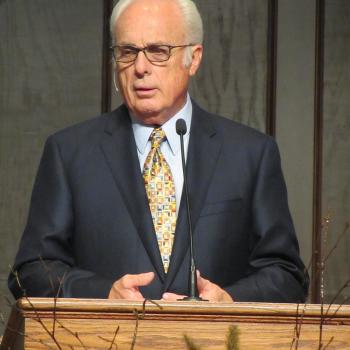Recently I was discussing Critical Race Theory with a professor colleague of mine who in every sense of the word is more conservative than me. When interrogating the intellectual pedigree of CRT, one must address critical theory and eventually the biggest boogeymen of all – Marxism, and Karl Marx himself, words that are viewed by white evangelicals and political conservatives as the very epitome of evil itself. My friend pointed out that CRT’s Marxist roots are a “huge obstacle” for getting Christians to take CRT seriously. He’s right, but I’m greatly disturbed that he is. I will explain.
I have known for years that Marxist, Marxism, and socialism are epithets designed to shut down conversation, not expand it. They are deployed to end thought, not to deepen it, whether during formal political communication or informal social interactions.
What I don’t understand is why so many otherwise educated conservatives and evangelicals don’t seem to understand that the source of an argument has no bearing on an argument’s validity. As an educator for over thirty years, I have made this point to my students more times that I can count. When one values or devalues an argument based on its origin rather than on the merits of the claim itself, the field of logic deems this a “genetic fallacy” in one’s reasoning. This kind of fallacy produces irrelevant conclusions about the merit of an argument. (Click here for a more nuanced analysis of genetic fallacies.)
Scripture teaches that people can learn at least two things from demons (fallen angels), and this alone should disabuse evangelicals from succumbing to the genetic fallacy in their thinking. James 2:19 says: “You say you have faith, for you believe that there is one God. Good for you! Even the demons believe this, and they tremble in terror.” So demons were theists before the creation of Adam and Eve, and they tremble when they contemplate the reality of God’s existence and character. (Of course, it is because of God’s holy character that demons’ eternal destiny is in hell, which must also cause them to tremble!) The world would be a much better place if each of us adopted these two demonic beliefs rather than falling for their lies.
Or consider Adolph Hitler and the autobahn. Hitler enthusiastically launched Germany’s construction of limited access highways in 1933, and in 1935 the first section of the national highway system opened between Frankfurt and Darmstadt. General Dwight D. Eisenhower’s experiences with the autobahn in Germany during World War II inspired his 1955 presidential actions that led to the creation of our Interstate Highway System. While Hitler’s name is synonymous with unredeemable evil, that in no way diminishes the value of the idea of our Interstate Highway System.
So, if we can learn and apply valuable beliefs and lessons from fallen angels and Hitler, why can’t we learn things from Karl Marx and his ideological progeny? Since American evangelicals openly embrace the theological and political ideas of slaveholders, anti-semites, racists, adulterers, rapists, and various kinds of public hypocrites — and sometimes even enthusiastically vote for them — why can’t we also thoughtfully and discerningly explore the merits of CRT, critical theory, or socialism? American evangelicals’ over-the-top revulsion toward all things even loosely related to socialism implies that it represents either a greater degree of, or a worse kind, of evil than Hitler — or even demons. Too many evangelicals literally treat Karl Marx as though he existed outside the realm of general revelation! This is simply ludicrous.
Karl Marx
By now you may be asking yourself “why does this matter?” I am going to propose just one reason why I think this all matters. This matters because Marx and his intellectual descendants have created the largest body of scholarship on the role of class and use of power in capitalistic economies. (Actually, from a biblical perspective, scholars in the Marxist tradition actually study the abuse of power. See Playing God, by Andy Crouch.) While many of their conclusions leave much to be desired and have inspired many competing historical interpretations, I have observed that the degree to which people reject any and all Marxist-related historical analysis in their thinking closely correlates with the degree to which they refuse to see the role of social class in American society and history. Acknowledging that social class distinctions and conflict are very real and consequential parts of US history (and our contemporary situation) does not make someone a Marxist, but it does actually incline them and resource them to discern many of the shortcomings of such works such as the 1619 Project and the 1776 Project, to think with some nuance about anti-racist thought (think Ibram X. Kendi), and to see how in some fundamental ways CRT is more post-modern than authentically Marxist.
It made perfect sense to me when I realized that the World Socialist Web Site published academic attacks against the 1619 Project, but I also laughed heartily because the conservatives most inclined to attack the 1619 Project were the least inclined to read something like the World Socialist Web Site, or even understand why it would publish pieces critical of the 1619 Project! Those conservative political and journalist critiques were also not inclined to attack the 1619 project on the merits of its history, like the A-list historians (Sean Wilentz, James McPherson, Richard Carwardine, and Clayborne Carson) on the World Socialist Web Site who had not even necessarily made a name for themselves as “leading Marxist historians.” (Click here to read John Fea’s helpful insight into critiquing the 1619 Project and the culture of the history profession.)
Evangelicals and conservatives have GOT to stop falling for the genetic fallacy every time someone mentions the word socialism or Karl Marx. We must stop living in fear of ideas, and learn that we can learn some useful perspectives even from unbelievers like Marx and those he inspired (since they were responding to real historical issues), and we might even be surprised to find out that we reach some roughly complimentary conclusions about some contemporary issues while following different routes to get there.














